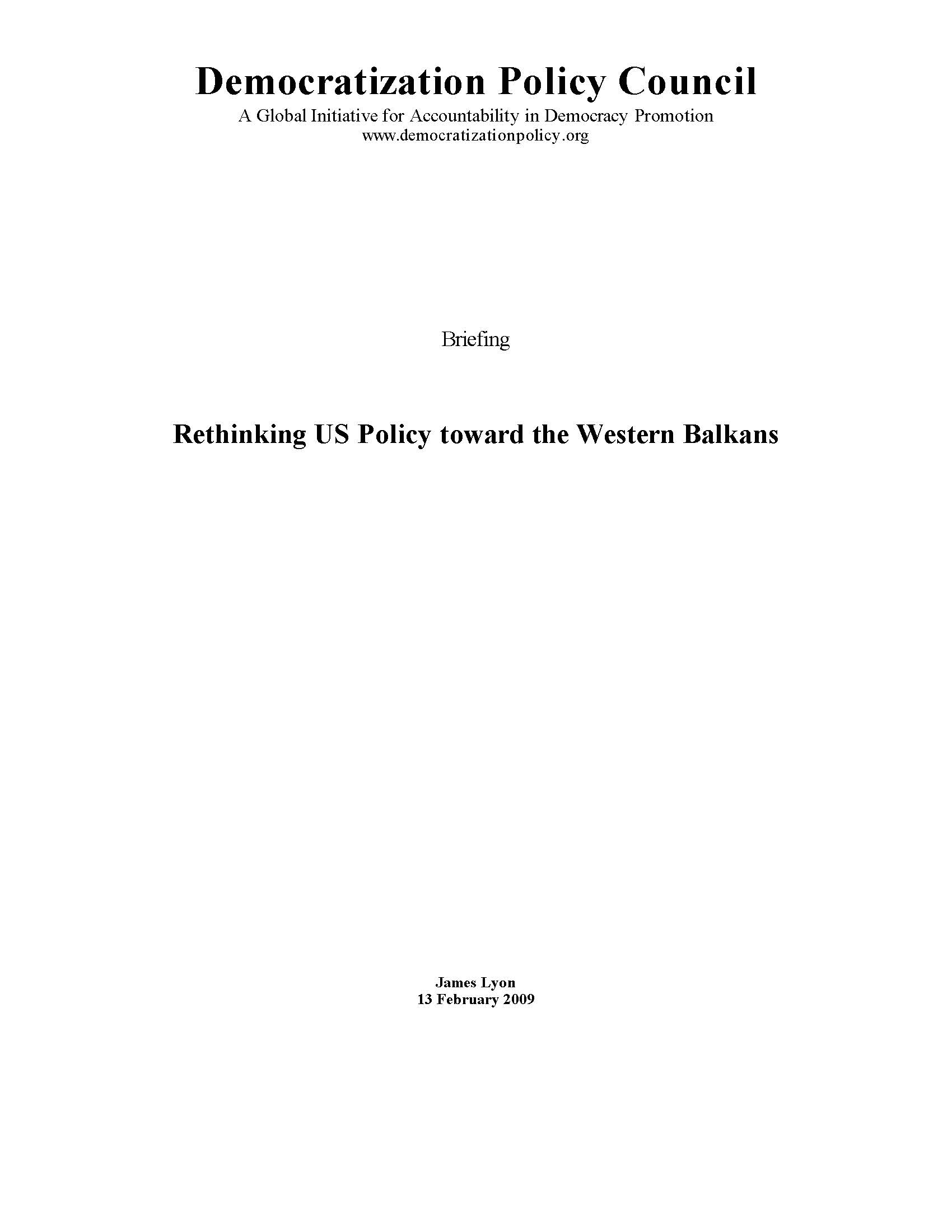№03 Rethinking US Policy toward the Western Balkans
№03 Rethinking US Policy toward the Western Balkans
Author(s): James Lyon
Subject(s): Politics, Governance, International relations/trade, EU-Approach / EU-Accession / EU-Development
Published by: DPC Democratization Policy Council e.V.
Keywords: Western Balkans; US policy; BiH; Kosovo; Serbia; Macedonia; Croatia; US; Presidentional Envoy; EUSR; Sarajevo; Nabucco pipeline; EU;
Summary/Abstract: Euro-Atlantic policies towards the Western Balkans have reached the limits of their effectiveness, as countries throughout the region have hit a brick wall in the reform and European integration process. It is time to examine the effectiveness of the western alliance’s policy approach towards the Western Balkans and adjust it to meet new realities. The legacy of the wars of the 1990s means that for many Balkan states, the lure of EU integration is not as powerful as Brussels had envisioned. The failure of the Lisbon Treaty, combined with internal EU disagreement over regional and enlargement policy, has also sent a signal to the Western Balkans that EU enlargement is not as high a priority as Brussels wishes to project. Bosnia and Herzegovina, Croatia, Kosovo, Macedonia and Serbia are all stalled in the European accession process, and in the case of Bosnia, the hard-won progress of the past 13 years has been jeopardized amid increasing rumblings of the possibility of renewed conflict and an ethnic carve-up. The “soft power” of European accession, while necessary and desirable, has clearly reached its limits as an inducement to progress. The Balkans represent low-hanging fruit in any foreign policy calculation: stability can be achieved without substantial new resources. Preventing renewed conflict is relatively simple, yet requires a new and coordinated approach. Euro-Atlantic policy must focus on halting the backward slide, stabilizing the region, and finding new ways to move it forward. This requires robust US engagement in support of a credible and strategically coherent EU policy to bolster EU “soft power.” There is an increasing risk that the international community’s investment in the Western Balkans could unravel. The US has an interest and a special responsibility, as it has spent substantial prestige and treasure in stopping the wars, and stabilizing the region. Renewed conflict could split the EU, generate transatlantic ructions, create safe havens for terrorism and organized crime, and aggravate the Muslim world. Refugee flows would create humanitarian challenges as well. This paper examines the challenges facing the western alliance in the Balkans, the limits of international influence under current policy, and the options available to enhance progress in the region. It offers five policy recommendations that will, if implemented, substantially alter the policy dynamic and assist the Euro-Atlantic alliance to stabilize the region and move it forward in the European accession process without substantial new resources. It also argues that little progress will occur in the region until the United States resumes its leadership role.
Series: DEM. POLICY COUNCIL - Policy Briefs
- Page Count: 8
- Publication Year: 2009
- Language: English
- Content File-PDF

